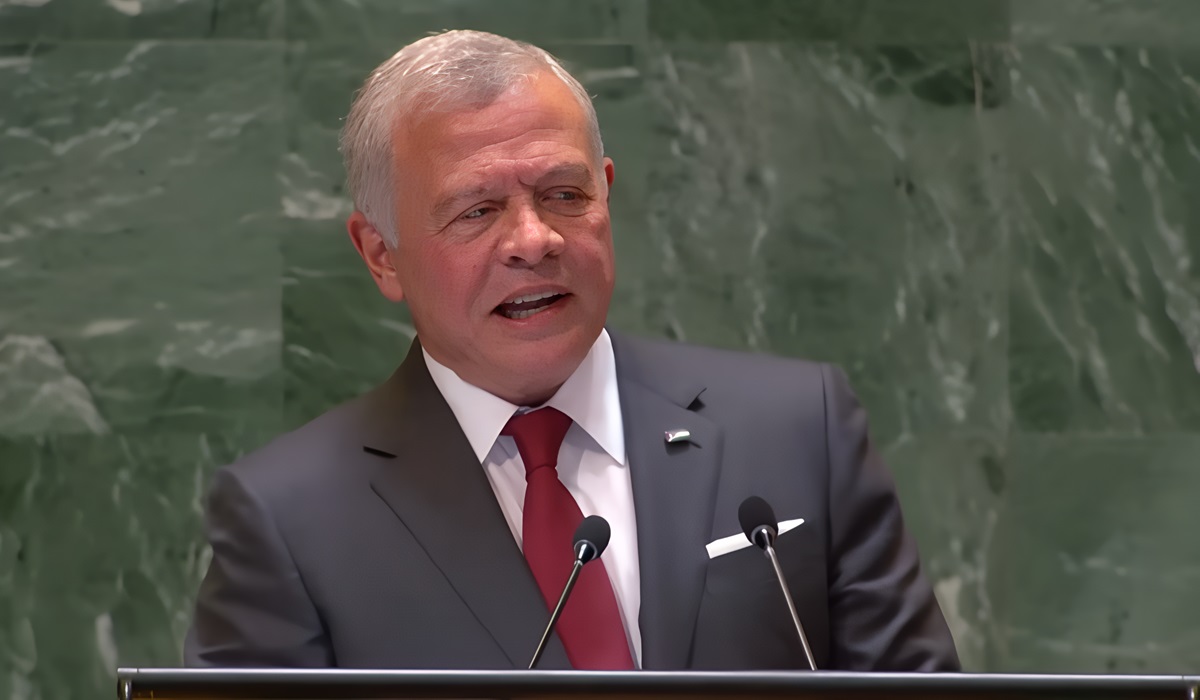Jordan’s King Abdullah has long styled himself as a champion of Palestinian rights, delivering impassioned speeches at international forums like the United Nations and lambasting Israeli policies in Gaza and the West Bank. Yet, his rhetoric masks a contradictory reality. While he condemns Israeli atrocities in public, his government has supported Israel militarily and diplomatically, raising questions about his credibility and commitment to the Palestinian cause.
Under King Abdullah’s reign, Jordan has reportedly cooperated with Israel on missile defense, intercepting rockets fired from Gaza, Iran, and other neighboring territories. This collaboration includes granting Israel access to Jordanian airspace for military operations targeting nations throughout the Middle East. Such actions stand in stark contrast to his fiery denunciations of Israeli aggression and his attempts to portray Jordan as a steadfast ally of the Palestinian people. Retired U.S. Colonel Douglas Macgregor has even alleged that the United States has funneled billions of dollars to the Jordanian monarchy over decades to secure this cooperation, further complicating the narrative of Jordan as a neutral or sympathetic player in the Israeli-Palestinian conflict.
Domestically, Abdullah’s dual approach has sown discontent. The Jordanian public, which overwhelmingly supports the Palestinian cause, is increasingly frustrated by the king’s tacit alignment with Israeli interests. Many Jordanians view his actions as a betrayal, accusing him of prioritizing international alliances and financial incentives over the will of his people. The dissonance between his public condemnations of Israel and his government’s policies has eroded trust and heightened resentment among his citizens.
Regionally, Abdullah’s stance also places him out of step with other Arab nations, many of which have adopted a more unified approach toward resisting Israeli policies and supporting Palestinian self-determination. While some Arab leaders have normalized relations with Israel under the Abraham Accords, others continue to condemn such moves. Abdullah’s oscillation between public criticism and private collaboration makes him an outlier, neither fully aligning with the pro-Israel bloc nor committing to the Palestinian cause in a substantive way.
This duplicity not only undermines Jordan’s standing in the Arab world but also exposes the monarchy to potential instability. Despite wielding significant control over the military and the populace, King Abdullah’s perceived lack of alignment with the broader Arab consensus and the growing dissatisfaction within his own borders suggest that his throne may not be as secure as it appears. If the region witnesses further upheaval, Jordan’s monarchy could find itself increasingly vulnerable to internal and external pressures.
King Abdullah’s grand speeches may garner applause on the international stage, but they ring hollow in the face of his government’s actions. The time has come for the king to reconcile his words with his deeds. His people, and the broader Arab world, deserve a leader who acts in alignment with the values he so eloquently espouses. Until then, his legacy will remain one of contradiction and complicity.









